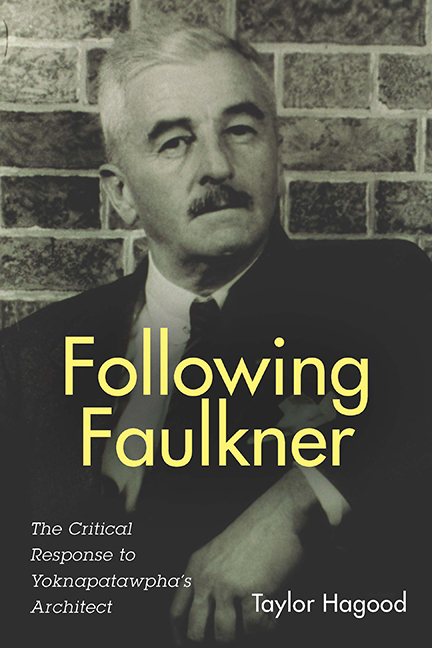Summary
Cleanth brooks's career extended into the 1980s, but by the time he had finished his final volume, the trends in the critical response to Faulkner were changing dramatically and the ways of following Faulkner were moving in radically new directions. We can begin thinking about this era, the “theory era” of Faulkner criticism, by considering what these changes were and the reasons for them.
One very immediate and urgent reason for these changes was that scholars and critics needed something new to discuss if they were going to be able to carve out space for themselves. Because such intelligent and talented writers as Brooks, Warren, Kerr, Vickery, and others had done their job so well, younger scholars faced the disturbing prospect that there was nothing left to be written about. It is a maxim that if you cannot win a game by its rules you should change the way and/or rules of playing to your advantage. This essentially happened with Faulkner criticism, but not only for the pragmatic reason of building careers. While career motivations played their part, much larger forces drove the game-changing. These forces altered intellectual conversation itself, facilitating new ways to talk about Faulkner.
Any attempt to describe these changes in a few paragraphs must grossly oversimplify, but one way to describe their essence is to say that where intellectual focus had previously taken a top-down approach it now adopted a bottom-up one. Where mostly white male and female scholars had before trained their focus on Faulkner based on a worldview shaped by white patriarchal values, now women and men of multiple races, ethnicities, and class backgrounds began to look at Faulkner from viewpoints that challenged those traditional values. Instead of simply talking about morality in light of a Western white Christian context, how might other systems of morality be applied to Faulkner? Instead of simply seeing the South as a neo-Confederate white space, what if the experiences and attitudes of African Americans are seen as being at the center of that region and its history? In short, what happens if the reader focuses on the nonwhite people of Faulkner's created world?
The result brought about the emergence of critical approaches that were much more socially oriented and aware.
- Type
- Chapter
- Information
- Following FaulknerThe Critical Response to Yoknapatawpha's Architect, pp. 50 - 99Publisher: Boydell & BrewerPrint publication year: 2017

